Maui had taken the front seat in leading the charge to eliminate vacation rentals following legislation approved yesterday. It will be signed into law by the Hawaii governor today.
With significant legal challenges also on the horizon, the path forward is not certain. What is clear is that Hawaii wants to move towards a future where tourism interests will take a back seat to the needs of residents.
Maui is already moving at breakneck speed to change Hawaii’s vacation rental market. Following yesterday’s passage of Senate Bill 2919, which grants local counties the power to regulate or even eliminate short-term rentals, Maui Mayor Richard Bissen has announced brazen plans to significantly reduce the number of vacation rentals on the Valley Isle.
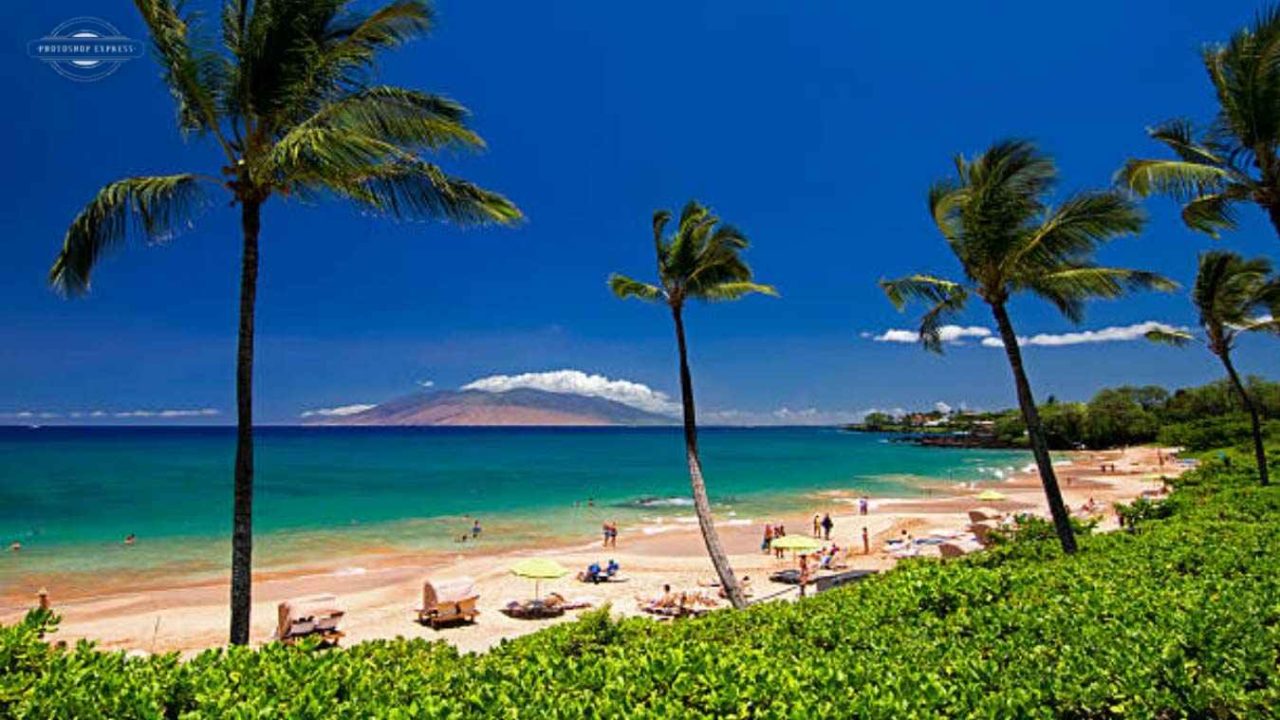

In a decisive move just following the bill’s approval by the legislature, Mayor Bissen proposed local legislation aimed at eliminating more than 7,000 vacation rental units by January 1, 2026. This strategy first targets units in West Maui, which is the area most heavily affected by the housing crisis made worse by last year’s devastating wildfires.
The current plan targets about 7k Maui vacation rentals.
Mayor Bissen, who spoke alongside leaders of the grassroots organization Lahaina Strong, emphasized the urgent need for long-term housing solutions for Maui residents, particularly those displaced by the wildfires. “We cannot wait as more families uproot and move away,” said Bissen during a press conference. He signaled a strong commitment to prioritizing resident housing over tourism.
The official list of short-term rentals to be removed includes well-known vacation rental resorts, as you can see in the references below.
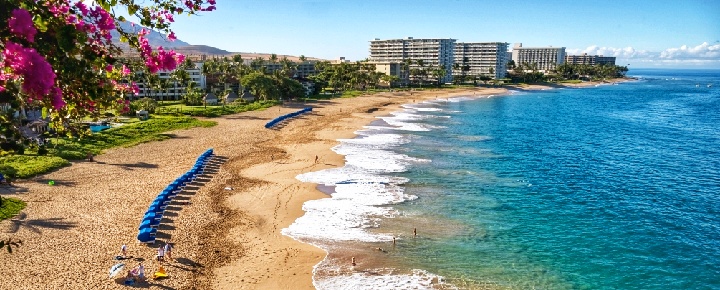

This latest Maui initiative is not without significant challenges.
The proposed changes are expected to have big economic impacts, including potential job losses in multiple areas related to vacation rental support, as well as decreased visitor spending.
There will also be a significant reduction in property tax revenue from these vacation rentals, which currently are a major financial support for all of Maui. Bissen acknowledged these challenges while maintaining that the priority must be to “house our local residents, especially now.”
The bill will next move to the planning commission for Maui, Molokai, and Lanai islands. It will need approval by the county’s Housing and Land Use Committee as well as by the full county council, all of which are expected. There will also be public hearings which you can undoubtedly expect to stir contentious debate due to the strong divisions on Maui about this.
Governor Josh Green voiced his support but will take a back seat.
While Green supported and will sign for the legislative changes, saying that reducing the vacation rentals could alleviate some of Hawaii’s housing issues, he has turned this back to the counties, which will be on the front line for the myriad of pushback that this plan will result in. Nonetheless, Green’s commitment is to sign the bill into law and thus empower the islands to tackle Hawaii’s housing crisis.
As Maui takes these significant steps, this issue has now moved into the national spotlight. This, together with similar steps in other tourism-dependent markets, could set precedents for successfully balancing economic interests with residential housing needs.
Which Maui vacation rentals are set to be eliminated.
If approved, the proposal is to eliminate the vacation rentals listed in the Maui County document referred to as Minatoya list of TVR’s. That is referred to in the related Maui County press release. Of those on the list, there are more than 2,000 in West Maui that will cease to be vacation rentals by July 1, 2025. The remaining approximately 5,000 will terminate being vacation rentals effective January 1, 2026. Some of the vacation rental resorts listed represent as many as 400 units, while others are smaller. You can see them in the attached list.
Does this pending change impact your Maui travel plans?
Lead photo: FB
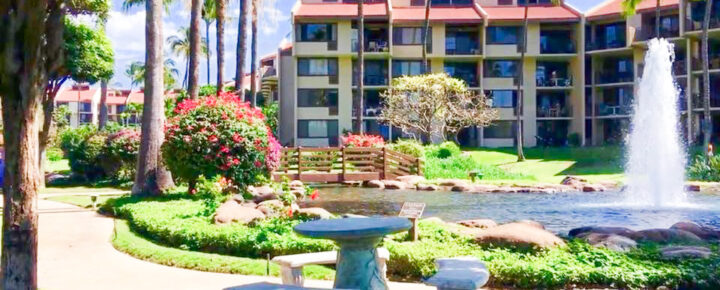


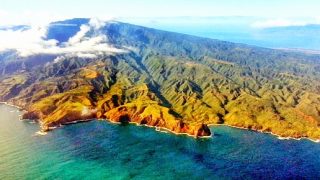


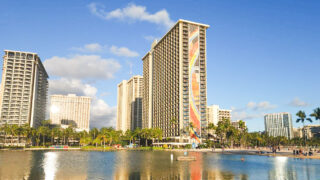
The solution should be to quickly build high rise apartments here for needed housing. Don’t disrupt the economy. Don’t loose jobs, tourism and tax money brought in by tourists using vacation rentals. The ban would effect 1000s of lives. STR owners, guests, employees of STR and employees and owners of retail outlets, Restuarants and etc. Use common sense. This place will be devastated.
This should be taken to a vote of the people who will be affected the most. Some group should be lobbying for this.
There are several powerful membership-based associations and groups that have had success in combining forces to overturn this type of legislation. Currently, among other things, these groups are soliciting and compiling crucial feedback from Local Residents as to how the current proposed legislation will destroy their livelihoods. They also partner with Airbnb, VRBO, etc.
These groups were successful in overturning recent Oahu STR legislation. Here are 3 of them:
– Maui Vacation Rental Association (MVRA)
– Hawaii Legal Short-term Rental Alliance (HILSTRA)
– Grassroot Institute of Hawaii
– New Facebook Group dealing mainly with the Minatoya bill: STRs are Not the Problem
I’ll sure be watching with interest. I have two weeks of time shares on Kauai and I’m going to them summer of 2025 no matter what. I really wanted to tack on two weeks on Maui. I was planning on booking a year out just so I don’t have to worry. Indeed many of the places I was looking at for my second week on West Maui are on the list.
It will be interesting to see what happens if I already book and STR’s are forced to kick booked renters out.
Don’t worry your vacation timeshare if operated by one of the big hotel groups isn’t being targeted. The government is going after the small individual owners.
We have a 3-bedroom vacation rental condo in Kihei. Our current cost is about $4,400 per month, that includes mortgage, taxes, HOA, and electric. This does not include repairs, a/c maintenance and unexpected expenses. If we were forced to rent this long term, we would have to charge $5,000 just to break even. The alternative is selling, along with 7,000 others in the same boat. Our mortgage rate is at 2.7% which is amazing. The new owners, if someone wants to buy this and rent long term or wants to live in it, with the current rates, would have to pay much more than us.
Good bye food trucks, sunset cruises, luaus, and so on, as i am sure tourists are not going to stay at the grand wailea for $1,200 a night!
Make it make sense!!
we just bought a vacation rental condo in Kihei in January 2022. I do not believe that you fully understand the economic impact this will have on the local maui residents who rely on tourists to pay their bills. As a business person for decades who own long term rental properties in New York and New Jersey, I know that you are deliberately killing the golden goose and biting at the hands that are feeding the maui residents. you can not replace the money currently being generated via short term rental taxes. Lahaina strong organization are forcing more maui locals to go homeless and for what?
Hawaii Legal Short-Term Rental Alliance v. City and County of Honolulu et al, Civil No. 1:2022cv00247
Does anybody actually calculate what a converted STR on the low road would cost to buy or rent? Here is the monthly cost of a TINY $400k (low end) 2 bedroom condo.
$2398 Mortgage at 6% (assumes 100% financing)
$800 HOA Fee
$400 taxes
$300 insurance
$400 repairs allowance
That is $4298 total.
For an investor wanting to long term rent, they would have to set rent close to $5,000 a month. A renter would need to make $100k a year to afford this.
For a local buyer, to qualify for a mortgage, they would need to make at least $130,000 annually.
So the politicians Know that these bills will not actually help the people they claim to be helping. They are only lying to make the activists happy and score political points.
100% agree.
Mayor Bisson knows full well this will likely get overturned in court
(he won’t get the blame) just the credit.
If it doesn’t get overturned he has now moved the people from
Lahaina, thereby freeing up Lahaina for Gov Green development.
He gives the appearance he is doing something for the victims.
He got the protestors to leave K beach.
The Stafford Act authorizes FEMA to provide direct temporary housing for up to 18 months when eligible applicants are unable to obtain temporary housing due to a lack of available housing resources. 9 mos now. Landlords beware in a location impossible to evict. Who can afford to rent to jobless? At this press release it was stated this law is more important than losing jobs & lawsuits.
I have owned my short term rental condo on Maui for over 30 years. I was told that the TAT tax collected was to be used to build low income housing for the locals. Where are these low income housing? Where did this money go? It seems to me, this question has not been answered and the blame is being put on all the short term rental owners.
It would be interesting if BOH was to write an article on where the tax funds are used and if there is money being allocated to low income housing.
@Press release Bissen mentioned asking for dates to start bans knowing it will take longer than that. Perhaps same thinking in banning 7000 STRs on Maui. May end up a lot less. Many will not provide adequate housing, be affordable or given up for long term. Lawsuits will include compensation for loss of income. Wish there was a way for making the responsible parties personally liable. Lets find creative lawyers. Pregnant women & small children attended to add sympathy while they said loss of jobs doesn’t matter if they have no beds to lay their heads. No beds at all without rent $. Their expectations are high & unrealistic. Perhaps the FEMA free housing shouldn’t have been refused.
I agree… if they passed up FEMA housing because of a 30-40 minute drive, that is a decision they made. It is an unfortunate situation, but my understanding is housing solutions have been offered until long term housing can be made available.
Am I misunderstanding the situation and availability of FEMA housing?
There are multiple articles online confirming that FEMA has been renting over 700 units without any tenants for months. That’s 700+ apartments and homes that aren’t available for locals to rent at a regular rental rate and that FEMA hasn’t moved anyone into. When they interviewed a bureaucrat liason for FEMA he said that this is well known secret but it’s good that it finally came out. Except it didn’t get any follow up by any major news organizations who are more than happen to assume that the announced but not yet written short term rental elimination proposal is already a forgone conclusion. Big business continues to roll over the little people.
We are all talking as if this bill is related to the housing crisis.
It isn’t.
For years, the government has concocted reasons to get rid of STRs.
One year it was “STRs are destroying neighborhoods”, copying the rhetoric of other cities.
The next year it was “Overtourism is destroying island life. Less STRs means less tourists”.
Now, the made-up reason is “STRs take away local housing”. A new one they hadn’t thought of before! Might as well try it, especially in light of the fires.
My point is that it doesn’t matter how hard we try to convince them that STRs aren’t the villain. That won’t phase them.
The truth of the matter is that the hotels are behind all of this, and have been for years.
Hotels, and Mufi, are the bane of our tourist lifeblood industry.
Overpriced, with eating out at exorbitant rates, and doing whatever they can to keep guests “on-site”. Why? So they can sell expensive mai-tais in the hotel pool bar? Do these places really attract the kind of tourists residents want? Maybe so. “Keep them in their cage, not on my beach”… Eventually guests will realize that you can buy a drink at a hotel pool bar anywhere in the sub tropics or tropics at a far lower cost.
Personally, I wish hotels were all banned and that only residents could welcome guests in their homes and on their properties. Think about it. That is true “Aloha”.
for what
How will the new laws & regulations effect existing timeshare owner who have a recorded deed to their property? Will we be correctly compensated or not??
If you own, you aren’t renters. You can use your share.
You can use the unit, but can you put it up on Redweek when you’re not going to use it?
Jack,
If you are an existing owner you should join mvra dot net. they will likely arrange to represent owners to ensure their legal protection and just compensation.
Exactly my question, also. I noticed many of the properties listed on that TRV list are deeded timeshares!
We have been going to Maui for 18 years. We have always been considerate of the people that live and work there. We know how hard it is to survive on the wages and housing costs. Although we are considered tourists we stay for a month. It feels like home each time we return. The owner of the condo we have been renting will probably be selling it even though she has no mortgage. She has been good to us and kept her rates within reason until now. It’s just a studio that could not accommodate a family. We love Maui and helped support the people there by donating to the food bank during Covid, by sending money to the fire survivors, and supporting the local artists each time we return. We will not be able to do that in the future.
We thank you for all of your support and love for our island. This isn’t over yet. Hopefully the lawsuits will delay action. The mayor is trying to play God. He comes across as sincere and just may be. There has not been enough research done on the impact or thought of how to cope with and recover from the repercussions. One sightedness to provide homes for locals. How did the 2200 needed homes turn into 7000 and include non suitable properties that the locals will deem not good enough? Looks like a deliberate attack on STRs period- a definite “taking”.
This is not about housing. This is about limiting tourism. The housing “label” is just for emotional cover.
Then when the economy is in the tank… who will they blame?
I have been visiting West Maui once or twice a year for 30+ years (except during Covid). I, too, have donated to local charities, to Maui Strong and helped at the animal shelter when visiting. My stays are usually for 3-6 weeks, during which I frequent locally owned stores, restaurants and vendors. I try to be a respectful and contributing visitor. For the past 20+ years I have rented a studio STR that is locally owned and is on the list to be unlicensed. I am heartbroken because I do not travel to West Maui for the big hotel glitzy experience; I prefer the aloha I feel from staying at my STR. I am hoping to schedule one last visit to my home away from home.
There’s a word in Hawaiian that perfectly describes both County and State government: hāwāwā (incompetent). It’s truly shocking how utterly inept and corrupt Hawaiian politics are.
While Josh Green takes a lot of incoming flack, he is actually building brand-new emergency low-income and workforce housing at a rate far higher than any of his predecessors. It’s not nearly enough, and county governments are particularly dysfunctional and often stand in the way of smart policy due to a reflexive distrust for anything other than the same-old same-old.
Totally agree. We have a Leadership Crisis. All other crisis’ flow from the top. Manure rolls downhill every time.
You did not do a very fair job here explaining the source of these units and why they were chosen to be converted back to long-term apartment housing, which they were originally.
I don’t think that you mean to give people undo alarm, especially on other islands where this is not relevant. I wish you would’ve given more and fair amount of information.
Aloha Cynthia. The article is specific, because it provided the reasons and the “list” of condos/timeshares that were originally built as apartments, (MF) Multi-Family homes. Over the years owners sold them to turn into (STR) Short-Term Rentals, but they are in original an “Apartment District”. These will be the first, if they lose their lawsuits, to be converted back to apartments for families that lost their homes. Read the article and look at the clickable list, where you’ll see the places originally listed as (MF). Those places listed as Hotels, (H), are going to be fine.
The vast majority of the Minatoya units were never used as long-term housing. They were originally built as vacation homes and short-term rentals, and they have been used that way ever since.
It’s a falsehood to say that these units were originally long-term housing. They made that up. This bill is attempting to steal the units from their intended use, a use that has been in place for the last 50 years.
Although the zoning was A1 and A2 at the time, that is not what the developers built, and not the way most of them have ever been used. So no one took long-term uses and converted them to short-term uses.
I don’t understand why we keep having to explain this, over and over again.
Pat…Thanks for more information. Many voices will get all the info out to people, stuff that not all of us know. I do agree they are not needing 7K units and NOT all of them are rented out. we have units in our place that Are owner occupied so they are simply adding up all the units and Assuming they are all STR’s?. But that Aside…now that they have the right to change the zoning, we can’t be sure any of the units are going to be Allowed. OF course thank you Kim for giving us a place to stand up and oppose it. Mayor wants votes and pregnant women and small children are simple, effective props. its not about needing housing, the core issue is we are competition to hotels and they have deep pockets to give to politicians.
I agree. My husband I own a one bedroom condo that is on this list. My family has owned in this complex since they were built in the 70’s. They never were long term and were never meant to be, believe me. To me, this is the way they are taking our property by changing the rules. A moratorium on STRs should have been imposed along time ago. But this is just wrong. This was a way we could have a permanent place on Maui or our family to enjoy Maui and supplement our SS income so we can pay our bills. It’s just wrong to take it away from us.
Many of these were never long-term rentals. Many (maybe most) were purpose-built as short-term rental units. Some are actually resort communities. They were simply built under the zoning exception that has been in place for the last 50 years. I guess we can blame the developers in the 1970s for not foreseeing that the exception would be removed in 2025.
I listened to the entire announcement from city council. They kept on talking about the need of work force housing. Did anyone look at Minatoya list ? They are Not work force housing ! 1 or 2 bedrooms condo is NOT work force housing. Maui needs 3 bedroom condo’s at $2000 to $3500 per month. I suggest city council and mayor do some reading like rest of us and take example from Los Angeles, Houston, Phoenix, New York……
– Build work force housing inland
– Create transportation infrastructure to allow work force to travel from / to.
That makes perfect sense… I believe part of the problem with building inland is that workers don’t want a commute. They want to be in West Maui like everyone else, which is understandable, but unreasonable given this is largely a resort area.